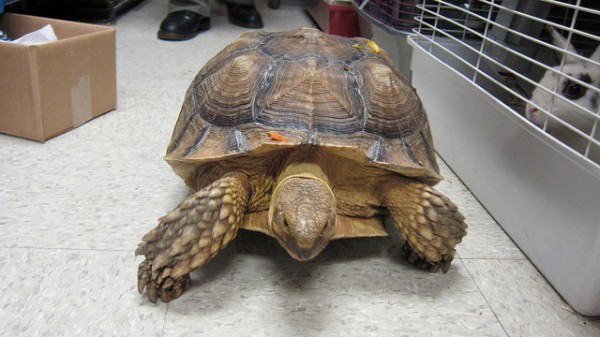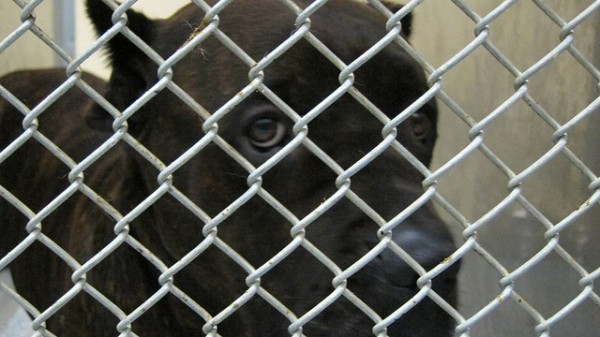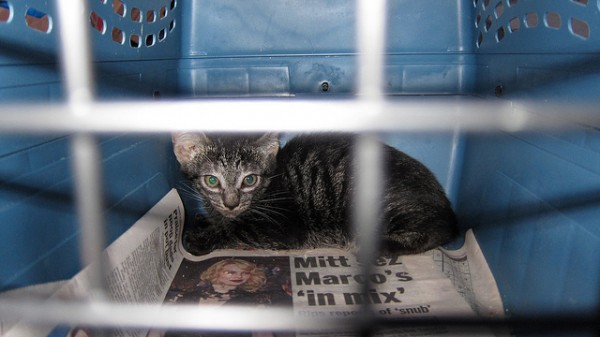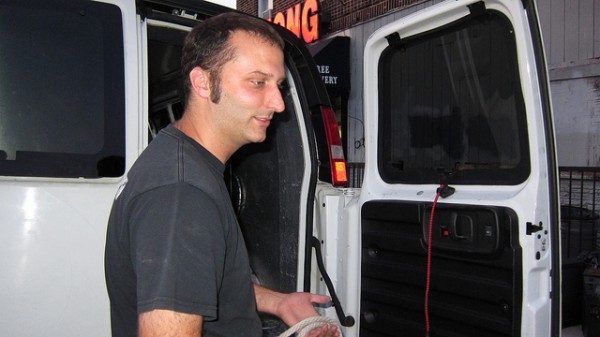Russian Gymnast "Divas" and Other Shady NBC Tropes
“NBC… produced fluff pieces that made Deva and Round Lake, the Romanian and Russian team training centers, look like Dickensian orphanages where families abandoned their athletically gifted children — while showing America’s Dominique Moceanu playing on a seesaw.”
— MMM HMM. It’s been like this for ages, but it was really particularly hard to enjoy yesterday’s amazing Olympics gymnastics with the high level of broadcast idiocy going on!
Born To Run Off At The Mouth

“But rock n roll has played also another role in American life, which is to prove that Herbert Marcuse was right. There will be no revolution in America. This society will contain its contradictions without resolving them; it will absorb opposition and reward it; it will transform dissent into culture and commerce. Marcuse’s mistake was in believing that this is bad news. It is good news, because we will be spared the agonies of political purifications. But it is also comic, as protest songs become entertainment for the rich, and Bruce Springsteen the idol of the elite.”
— I have no horse in this race: I don’t really care about Bruce Springsteen (sure I love “Born to Run” and “Nebraska,” whatever!) but I’m not going to read about him, nor do I care about reading about reading about him. But still, there’s something delightful about someone going in so hard against David Remnick and Jeffrey Goldberg on their recent Springsteen pieces, as Leon Wieseltier did this week. Mostly it’s delightful to see someone not mellow with age, even if all the noise is lost on me.
TV Show Has World's Most Boring Premise
“Having only driven a horse and buggy, Jeremiah craves the thrill of driving a car, something he’s only admired from afar.”
— Zzzzzzz.
"How Often Do You Get Bitten?" A Chat With Sean Casey, Brooklyn Animal Rescuer
by Brian Pritchett

The first in a month-long series on the people and peculiarities of where we’re from.
If you live in Brooklyn and have any kind of affinity for animals, the odds are fair that you’ve heard about Sean Casey. He operates his shelter — Sean Casey Animal Rescue (or SCAR) — out of a cramped storefront in Windsor Terrace. The no-kill shelter takes in around 150 animals per month, providing a service that too often can’t be served by official agencies. Stop by the shop and you’ll see gerbils, hamsters and domesticated rats, lizards of all possible description, as well as chattering parakeets, lonely-looking cats and, lumbering freely along the floor at comically low speeds, several rescued tortoises. Volunteers and staffers dash about, answering visitors’ questions in between stocking shelves and tending to the menagerie.
Nearby the store is a kennel, recently opened, for the dogs taken in by the shelter. SCAR is particularly known for its work with pit bulls: sometimes abandoned and gone feral, and sometimes rescued from the shockingly cruel underground dog-fighting culture. The stories about these dogs are dramatic and sad, although SCAR’s work also seems to be a reliable subject for soft-focus pieces. In one such segment, a reporter from Channel 11 dubs Casey “The Pit Bull Whisperer.” Casey has appeared on “The Today Show” and on Animal Planet. When a two-headed turtle was stolen from his shop, The New York Times covered it.
Despite all this press, I might never have heard of Sean Casey were it not for the time my girlfriend, Maya, out walking her dog, happened to spot an enormous turtle crawling among the graves of Greenwood Cemetery. The turtle was a behemoth, nearly two feet long, and also clearly lost and in a bit of trouble. How and why had it crawled to this spot, on the opposite side of the grounds from the ponds? Had it decided on an inadvisable life change, maybe a move to Manhattan? Concerned, Maya called the cemetery, and was told that, while they’re aware of the community of snapping turtles living in their ponds, there wasn’t much they could do for this particular turtle. So Maya called SCAR, and Casey came to meet her at the same spot that evening, after the cemetery had closed. After sizing up the situation, Casey scaled the eight-foot fence, picked up the turtle, and climbed back over the fence, with one arm securing the furiously snapping creature. Then he thanked Maya and drove away with the turtle — like a turtle-rescuing superhero.
I recently met with Casey at the kennel, a 5,000-square-foot facility that houses SCAR’s offices as well as dozens of baying, rescued dogs.
Do you remember how things turned out for Maya’s turtle?
They actually belong there, believe it or not. There are two ponds in Greenwood Cemetery, and the turtles live there and come up to breed in the summer. There are several reasons why it could be wandering around out there. If it’s female, she could be coming out to lay eggs. Males fight for territory, and the stronger males will push the weaker ones out. The key with an animal like that is that before it’s re-released, you want to make sure that it isn’t out there because it’s sick. We have a reptile specialist in Pennsylvania, a vet and a good friend of mine. So we took the turtle there.
What about the turtles we saw in your shop? Are those from the cemetery?
Those are tortoises. They’re actually native to Africa, but they’re very common in the pet trade. When they’re born they’re about the size of a golf ball, and they’re cute, but then they get really big. Nobody really thinks through what it means to own an animal like that. The biggest one I have now is 80 pounds, but, at full size, he will get up to 200. We used to keep him in a dirt yard in Queens, and he dug a seven-foot-deep trench back there. Fences can’t hold them. When you have an animal like that in your house, they knock over furniture, they chew on the drywall. I had one that saw his reflection in the front of the stainless-steel stove in the kitchen, and started to fight with it. So he rammed the stove, and smashed in the whole door. You can’t train them. When it pees, that’s a gallon on your floor. And they live, on average, for 100 years. Most people aren’t prepared for that. People need to do their research, especially with exotic animals. Ninety percent of the exotics we get are because people didn’t do their research.


In a large pen, Casey introduces me to the kennel’s most famous resident: Prospect Park’s fabled Ghost Dog, a hulking mastiff who, for years, was spotted in the park, where he lived as a homeless, but apparently content, feral beast. The Ghost Dog was a celebrated fixture in the park, like a canine version of the Naked Cowboy of Times Square.
It’s a cliché to describe an animal’s eyes as ‘soulful.’ But look at this guy, and try to come up with a better way to describe his eyes.

After you captured the Ghost Dog, you discovered he had several pressing medical problems. Can you tell me about that?
The Ghost Dog lived in Prospect Park for four years, and we kind of let him live there. We felt that at that time in his life, he was happier in the park than he would have been in a cage or someone’s apartment. That’s not typical. He was 109 pounds when we caught him, so he wasn’t starving. He had routines. He’d come down for the off-leash hours and play with the other dogs. But he always kept his distance from people. Most people wouldn’t even realize that he was there. That’s why they called him Ghost Dog. If you didn’t look for him, you wouldn’t realize that he was there. And if you were looking for him, he’d take three steps and just disappear.
Then people starting seeing him just lying out in the open. He’s this giant dog, and he’s intimidating, so people assumed he was mean. But it turned out that he had Lyme disease, and bone fragments in his knee, so he was just tired, and he didn’t have the energy to run away. We talked about it with the Parks Department, and officially, the dog had to leave, but until we started getting complaints no one was really pushing for it. My fear was: here’s a dog that never caused a problem for anybody. And if he ends up not doing well in captivity, his options are gonna be so limited. Luckily, it didn’t turn out that way.
How is his rehab going?
He’s got about two months left. He’s finished his treatment for the Lyme disease, and his knee surgery is in two weeks. There’s a month of recovery after that, and then I want to do a little more training with him outside of the building, to get him used to the streets and the sounds. My goal is to take him for a walk in Prospect Park, where he’s comfortable with me, and doesn’t just want to run back to the woods. I’m afraid that if I give him up prematurely and he gets loose on somebody, we’ll be right back where we started.
Most feral dogs take months, and some can never be domesticated. But fifteen minutes after we had the Ghost Dog, we were petting him, and within a week or two, I was walking him. Now some days I’ll go up to the cage and he’ll start wagging his tail, but then he’ll catch himself and sit back down, and he’s very stoic again. But he’s getting there. We have to make sure that it’s the right time for him, and then we have to find the right home for him.

In another pen, Casey showed me a frightened-looking pit bull-mix, one of a pair who were living along an active railroad line in South Brooklyn. The feral, aggressive dogs had caused a lot of fear, and some injury, to the residents of Borough Park and Midwood. They killed at least one pet and mauled another, and eventually attacked a 70-year old woman, whose wounds required dozens of stitches. Casey and his team spent six months tracking the dogs, sometimes camping out overnight on the rail lines. He captured this dog in March.
After the attacks, Dov Hikind, the district’s State Assemblyman, publicly called upon local police to shoot the dogs on sight: “The police have a responsibility to ensure public safety. If budget cuts prevent Animal Care and Control from coming out and collaring these nasty pit bulls, then at the very least, the police should respond immediately and shoot these dogs on sight to prevent any further attacks. By the time police actually show up, these dogs are probably halfway to Mexico.”
How did you feel about Hikind’s remarks?
It was bad rhetoric. I called the Assemblyman’s office, and I said, “I’m willing to work with you guys to catch these dogs, and I’ll put my all into this, but you need to tone down the rhetoric.” And they did. Going into it, I thought there would be no talking to him. But he was receptive. He had heard about the aggression from these dogs, and he’s not an animal person, so he just took what was handed to him. If you watch the videos on YouTube, this dog is lunging at the fence, growling and snapping at people. The first few times I saw her she would charge at me. But I’d charge back at her, and she would run away. That’s how I knew, it was all bluff. Now that she’s here, she’s like a shell of what she was out there. I can go in the cage with her, and all she’ll do is cringe. She’s broken, just from being a captive.
After we caught the first dog, the Assemblyman invited me to his office, and I had a sit-down meeting with him. He looked at pictures of my newborn son with my pit bull, and he was impressed. And I respected him. He recommended that we make some educational videos about pit bulls for his website, so we’re working on that. If we can take this and turn it into something positive, and educate people, then it’s all worth it.
What will happen with the dog now?
It’s not easy. The problem is, what is she gonna turn out to be, after all this? She could get that same confidence back, and be aggressive again. Or she could wind up being a wonderful dog. Right now we’re just working on trust. We talk nicely to her. We try to hand feed her. And she’s getting a little better. To get this dog on a leash one day, I’m looking at a minimum of another six months. Right now she doesn’t understand what a leash is. If I put it on her, she does alligator rolls. She falls on the floor and spins and screams and poops. At the same time, if I put my hand on her, she doesn’t bite me. Ultimately, she doesn’t want to be aggressive. Out there she was a wild animal, and a wild animal is gonna hunt other animals. She was protecting her territory, and protecting her mate. Now she’s in captivity, and she doesn’t know what the hell to do with it.


How often do you get bitten, in your line of work?
A lot. (He shows me his hands, which are lined with scars, and points out a ring of tooth marks around his right thumb.) That’s from a lizard.
That must have been a big lizard.
A monitor lizard. It was a rescued animal that I had. There were actually two of them, waiting for transit. I was 17 at the time, and I had the two monitors in a glass cage in my bedroom. I was sleeping, and they smashed the glass and got out. The sound woke me up, of course. The animals weren’t actually all that aggressive. I picked the first one up and put it into another cage, and when I was putting the second one in the first one jumped out, past my face. As a reflex I threw my hand out and caught it by the tail, and it whipped around and got me, like that. I’m not usually quick to go to the hospital. I butterflied the wound and put pressure on it, but I couldn’t stop the blood. So I went to my brother’s place down the block, and he said, “You’ve got to go to the hospital.” I said nah… but I started getting dizzy, so he took me.
(He shows me another scar on his hand.)
Believe it or not this little nothing sent me to the hospital too. It was a Chihuahua. Exposed my entire knuckle. And this one is from a black Lab. I’ve been bitten by just about any kind of creature you can imagine. When it happens, I try to learn from it. Most things don’t bite me more than once. But when I do get bitten, it’s usually bad.



How do you protect yourself when you’re rescuing animals? Not just from the animals, but from the people involved?
With animals, the point is to read them. We know what the dog is thinking, and we know how to predict when a dog is going to be aggressive. People are harder. The guys who work with me… we’re old-school Brooklyn guys. We know how people function in different neighborhoods, and over the years we’ve gotten good at talking to people. We had one house in East New York a few years ago, where kids were fighting dogs. And they were stealing pets to use as bait.
Bait?
A bait animal is a weak or old animal that they throw to fighting dogs so that they can tear it up, to get the blood and the kill into them. A lady called me when her dog went missing, and she was worried that the dog fighters had it. The building they used was abandoned, and for some reason, the police couldn’t go in. It was red tape. So I went out there with a crew of my guys, late at night, and she led us onto her roof so we could get onto that building’s roof. We went in from there. We brought a camera, and we documented everything, so we could give the pictures to the cops later, and maybe they could get a warrant. There were rooms where the dogs had been fighting, with blood on the floor, and blood mops, and there were pieces of animals all over the place. We went through the building, and every room had chains on the walls where they were hooking up the dogs. There was urine, there was feces. But there were no dogs. We eventually went into the basement, and found a female dog that had just given birth. She was full of milk, and was obviously used as a breeder, not a fighter. She came with us. The puppies were gone, so they had probably sold them.
And no one was there?
It was a gang of kids. They would house the dogs there, and train them there. At night, they would take the dogs out to fight, so they could gamble on it. We’re assuming that’s why no one was there. But the kids started to come back when we were in the house. When we’re in a situation like that, we try not to be covert. We want people to know we’re there.
Are you wearing shirts with SCAR on them, or something?
No. In a situation like that, we wear black hooded sweatshirts. I’m not a big guy, but in the sweatshirt, you give an impression. Some of the guys I’m with are bigger. So they see us, and we’ve got flashlights, and we’re talking loud, and we’re not acting scared. Usually, they assume we’re the police. We don’t identify ourselves like that, but they don’t want to find out.
Another time in that same area, a guy called us and said, “There are five dogs fighting in my yard.” We went over and found a puppy there, torn up but still alive. Bait. The guy who called us said that the fighters had already left with the other dogs. So I’m planning to take the puppy to a vet that I work with, but one of the women in the building said, “I’m going to keep the dog, you’re not taking it.” And this puppy needed immediate medical attention. I knew I couldn’t leave without the dog. And the louder this woman got, the more the crowd grew on the block. And everybody’s arguing. So when it started to blow up, my goal was to bring it back down. I said, “I can see you care about this dog. But look at these injuries. Are you gonna take this dog to the vet? Look how deep this is. This is muscle. This dog needs stitches, this dog may need surgery.” And sometimes you have to lie. I said, “I’ll take the dog and fix it, and you can come get it later.” And eventually she gave in, and that’s how I left with the dog. It was peaceful.
Does what you do require trespassing?
The honest answer is yes. It’s not so much that it’s required, but it’s something that I choose to do. I don’t have any real right to do it, and I could get in trouble as much as anybody else, but luckily the few times that we’ve had problems, the cops have been understanding.
Do you have friends in the local precincts?
My father is a retired police officer, and so is my brother. I know a lot of local cops. We work with the firehouses around here too. They’ll call us when they rescue animals, and people dump animals at firehouses and police stations, too. They’ll just walk in, drop a dog and run. Sanitation too: I can’t tell you how many of them have brought us animals over the years. They’ll look in a bin and see a kitten screaming in there, or find a turtle in a garbage truck.
What about the city’s dogcatchers?
The Animal Care and Control department. We work well together on rescues. But in a situation like those dogs on the railroad tracks, it took us six months to get the first dog. Three or four times a day for several hours, tracking the dogs. There were a dozen people working on it, although no one at the same time. It was four months before we even saw them. People were getting tense. Why hasn’t anyone taken care of this? How many people are going to get bitten? And the city is overwhelmed and understaffed. They can’t close down other operations to focus on this. Also, it’s a liability for the city to send their guys down there. It’s a live railroad, and it’s too much risk. But we have the ability to pick and choose our projects. And we knew that the longer dogs like that are out there, the more chance that somebody is gonna get hurt. When that happen, it adds to all the negative stereotypes about pit bulls. So they key is, get ’em off the street. If they can be rehabilitated, great, but first just get ’em off the street.
Is this the only job you’ve ever had?
No, I’ve done a lot of things. I started this as a kid, but I had side jobs. I delivered the Daily News. I managed a chiropractic office for awhile. Construction jobs, all kinds of things. But everything I was doing, I was also doing this. It’s what I always loved to do, I just couldn’t figure out how to make a living doing it. Eventually I decided to open the shop and take a stab at it. When I was younger I got in a lot of trouble. I dropped out of high school. When I was 19, I got my GED. I never went to college. I wasn’t, on paper, somebody you wanted to hire, and my options were slim, as far as what I could do. So I thought that opening my own place was best chance to do something.
Did you get a loan, when you started up?
No. I had no expenses at that point so I put everything away, and that’s what I used. Our first location was at JFK airport. It was trashed, but it functioned. We put almost no money into it, just rent and electric. We saved everything, and that’s how we started this place. It’s been a lot of struggle, but it worked. My long-term plan is to have a building like this kennel in each borough.
What kind of hours do you work?
365 days a year. We’re here on holidays, we’re here on weekends, everything.
How are you doing on donations?
They’re a big percentage of what we take in, and we definitely need more. The last two years, overall I think we’re probably down. We’ve been fortunate enough to have a few key fundraisers for building this kennel, and some generous individual donors. People can make donations through our website, or what we call chip-ins, where we have a specific animal who needs a specific expensive procedure. For instance, the Ghost Dog’s knee surgery is probably going to be in the realm of $3000, so we’ll make a chip-in for that, and we’ll have a hundred people donate five dollars, which adds up quickly. The power of social media.
How close are you now?
We probably have $1000 in small donations, and we have one person who donated another thousand in memory of her friend who passed away this year, who was a big fan of the Ghost Dog. She would go to the park every day to watch him. It was very generous and we appreciate it.
Brian Pritchett is a writer and web producer in Brooklyn. Photos by Maya Jakubowicz.
A Poem By Leonard Gontarek
by Mark Bibbins, Editor
Crazy
1
Ladies and Gentlemen,
We don’t want the forms
floating out there longer than necessary.
It makes crazy sense to me.
Do not, do I, take pride
in the loss of paradise? Cioran
Your hair shone like the Seine.
I’m pretty sure it’s a demon, bye and bye.
What are we talking about?
I’m in.
First the city disappears, bye and bye,
then the river.
I don’t have that kind of power.
An exact science made of small inexact sciences.
2
So you can see the fact of violence
the fact not only outside
not in any time intervals.
We never listen to anything. Krishnamurti
3
So I would understand,
so my life would mean something,
I read poetry on the elevated.
4
Not Found.
5
Praise the enterprise.
Praise the overdosed flies on the sill.
Praise the aroma of dress.
Praise the jade shade in tick-tock of glop the cook dished out
in our tiny tin prison cups in the crummy Mandarin Palace.
Customers knelt in rows.
Even as the last handcuff clicked shut,
a group of businessmen surrounded a table of remainders. Kingdom come.
Praise the firewall.
6
When crows gather they talk about branch will it hold me?
Crows are crazy I have no idea what they talk about.
Look when a crow escapes down a hole and clambers out covered in gold filings,
hear me the earth is divine, no wonder. Kingdom come.
Here’s what to do, open.
Lie down beside a deer corpse you found in the woods, six swords of sunlight vibrating in it.
Kingdom come.
You will then have riches, you will then have impermanence. The branches are silver with snow.
Cold down now.
I brought nothing, handful of food.
A book, that’s what the book tells me, I brought a book I bought on sale.
7
Praise If You Believe This Has Been Sent To You In Error.
In aftershave dripping of leaves.
Farther back, distance is moved.
Falling from great light. Spreads over war.
Your heart is gone. Maybe one arm by now.
Wait, I said. The automated chapel bells’ craziness crisscrosses like car lights.
Elaborate? I can’t, I said.
Follow the song from the radio. Give away and carry. When fumes touch. Summer in the mouth.
8
Lord, isn’t this what you asked?
The insects, summer after summer and the last west tree,
smooth, vertical. Half of the leaves in light, half in Paradise.
Buddha loads the gun with humanity, aims it at us.
Buddha takes us to work with him.
Buddha makes us work on his farms.
Buddha makes us fill out the forms.
We sell his snap peas and early pink strawberries at market.
The pennants are so beautiful. That is what has drawn us to him.
Much of the time is spent catching our breath.
The wind pushes the ghost boat tenderly on the lake
and ceases. This is the image that eats at us,
running to meet god at the door with gold scissors.
Leonard Gontarek is the author of St. Genevieve Watching Over Paris, Van Morrison Can’t Find His Feet, Zen For Beginners, and Déjà Vu Diner. He Looked Beyond My Faults and Saw My Needs is forthcoming from Hanging Loose Press. He has been a cabdriver, movie projectionist, bookstore owner, and teacher.
If you should like to read more poems we’ve got quite a selection. Click here for the archives of The Awl’s Poetry Section. You may contact the editor at poems@theawl.com.
Angel Haze, "New York"
How hard is 21-year-old, Michigan-born Native American rapper Angel Haze? Hard enough to diss the ever-lovable rap legend Heavy D a short nine months after he died. (“I’m better than you’ll ever be,” she says, “That’s why my shit makes your shit sound lighter than Heavy D.”) This video, directed by Adrienne Nicole, is disturbing — and this song is really good.
Literally The Worst Word On The Planet

I have always thought of the word ‘literally’ as someone else’s problem. Then, suddenly, it arrived: My summer of Literally. A recent family vacation revealed my brother as one of the worst offenders. He likes to couple ‘literally’ with the phrase… ‘on the planet,’ as in, “You are literally the best sister on the planet.” (Or rather, you were.) Other literally fans (is it the heat?): my lesbian best friend, my rich best friend, my yoga best friend — she’s the one it seems rudest to complain about since last weekend we went to Wanderlust together, and I spent half the time in a sobbing rage and the other half crawling around on a motel floor looking for an earring. But one of us used the word ‘literally’ approximately 18 times over the course of three days, and it was not I.
Before we get started, if you feel the impulse to go look up the meaning of ‘literally,’ please, be my guest. And if you suspect you use the word a lot, get one of those big dictionaries. Now hit yourself with it, really hard. Okay. Thanks. Here are five theories as to why ‘literally’ is the word of these times.
1. People use ‘literally’ because they’re always lying and they think ‘literally’ makes their bullshit sound better. Let’s say your plane gets in an hour late. And afterward you just sit in the airport parking lot going, “Fuck I don’t want to go home, my head is going to explode.” And then you go have two drinks, and then you go home. You would never say to the person waiting for you, “Oh, I landed and I was like, “God, I just can’t fucking deal.” So you say, “We literally sat on the tarmac [no one as burdened/important as you sits on a mere runway] for two hours.” Even though you sat there for maybe 20 minutes. When I hear ‘literally’ in the context of an excuse “The 405 was literally a parking lot,” “They literally do not have any light bulbs anywhere in Seattle right now,” I know what I’m hearing is a lie. A good excuse does not need ‘literally’ appended. A good excuse is naturally born from the machinery of a truly troublesome situation. ‘Literally’ is trotted out to imply mayhem and disorder when almost certainly none occurred.
2. People use ‘literally’ because they feel like all their stories have to be exciting. “I literally had to sprint to my class.” Okay, who gives a fuck? “I literally ate the whole hamburger.” Again, unmoved. Here’s one you hear a lot: “Oh my God, my best friend’s apartment is literally right across the street from…” …whatever. Where you live or work, your gym, your “best” friend’s house. How am I supposed to respond to that? Is the idea that I should meet this friend due to our proximity? Do we need to celebrate this enormous coincidence? Do you think if I stood in my living room and looked through a pair of binoculars and your “best friend” were naked and bent over I could literally see his asshole?
Here’s the worst example from this category: “I literally just got home.” Want to hear something that will blow your mind? I believe that you returned to your place of residence just before I got here. Strangely, I myself often get back to my place right before people come over too, and yes, it’s crazy shit, but breathe with me here, and let’s just sail right past ‘literally’ when describing this miraculous event of your having just returned home only to find me right behind you. In same vein, “We literally just got back from vacation today,” “We literally got back from vacation last week.” (What? Last week? How can this be?) “I literally was in Paris two years ago.” (I believe what you mean to say is, “I was in Paris two years ago.”)
I think people think that the word ‘literally’ gives their speech or stories a boost of adrenaline. You want to thrill me? Give me a nice, unadorned fact. Tell me something true. I will die of pleasure.
3. The ubiquity of ‘literally’ has something to do with Facebook updates and our secret guilt about what bullshit they often are. Let’s return to the sprinting to class example. Unless your class is 50 feet away, you didn’t literally sprint to it. You jogged ten feet and realized, wow, I’m totally sprinting to class, and almost immediately it dawned on you how hilarious your 598 Facebook friends would find this. So you stopped sprinting, and then you very likely performed a speech act: “I literally sprinted to class,” which, as you wrote your subsequent Status Update, made you forget that nothing had actually happened.
4. “I was literally so mad at her.” This is not a theory. This is simply the worst usage of the word I’ve ever heard.
5. ‘Literally’ is a way to call attention to rare moments of non-irony. Recently, a friend and I were going to Buffalo Exchange to try to sell some of her used clothes, and she said, “This shit I am trying to offload on these people? I literally got it at a thrift store in 1994,” and then she said (as everyone who uses ‘literally’ around me does): “Sorry.” Feeling magnanimous, trying to brush off the annoyance at being apologized to by someone who should instead have been self-policing, I said, “Well, it’s okay, because you did get the stuff at a thrift store in 1994 and you’re trying to say it’s not a joke, like if I said, ‘My ex-boyfriend’s grandmother is literally 110,’ and I’m not trying to make a joke about how old she is, she really is 110.” (I would never use the word ‘literally’ in that context. I was trying to be nice.) Then she said, “But, I mean, I didn’t get this stuff at a thrift store in 1994.” I gave my outrage a minute to subside, and I thought about how we make lots of jokes that sound like this: “My entire family spent their lives being chased by Cossacks,” or, “My mother should be in a mental institution” or, “She has more shoes than Imelda Marcos.” (Painful, but people not only say stuff like this, they write it down.) I don’t know exactly when we all decided that every single joke we made would lean on hyperbole or whose fault it is. It could be David Sedaris’ (his jokes are more cutting, exacting, observational, but the style?), or it could be Carrie Bradshaw’s (I’m generally a supporter, but let’s face it, she and that giant flower have a lot to answer for). At any rate, the appearance of ‘literally’ at these times is to signal that for once we’re not exaggerating. That we’re being real. Of course we have no idea how to be real, but some part of our brain obviously yearns for it, and trots out the word ‘literally,’ a tic, a crutch, a cry for help.
Related: How To Bully Children and Don’t Say That, Say This!
Sarah Miller is the author of Inside the Mind of Gideon Rayburn and The Other Girl, which are for teens but adults can read on the beach. She lives in Nevada City, CA. Photo by Paul Parry, founder of The Literally Project, used with permission.
Things Cops Say They Think
“’As protocol, he was handcuffed behind his back, double-locked and searched,’ said Jonesboro Police Department Sgt. Lyle Waterworth in an interview with WREG-TV. Just minutes later, police said they heard a thumping noise, turned around and found Carter shot in the head. Waterworth said he thinks Chavis Carter pulled out a hidden gun and shot himself.”
— Did the policeman think that! What an impressive thing to think.
